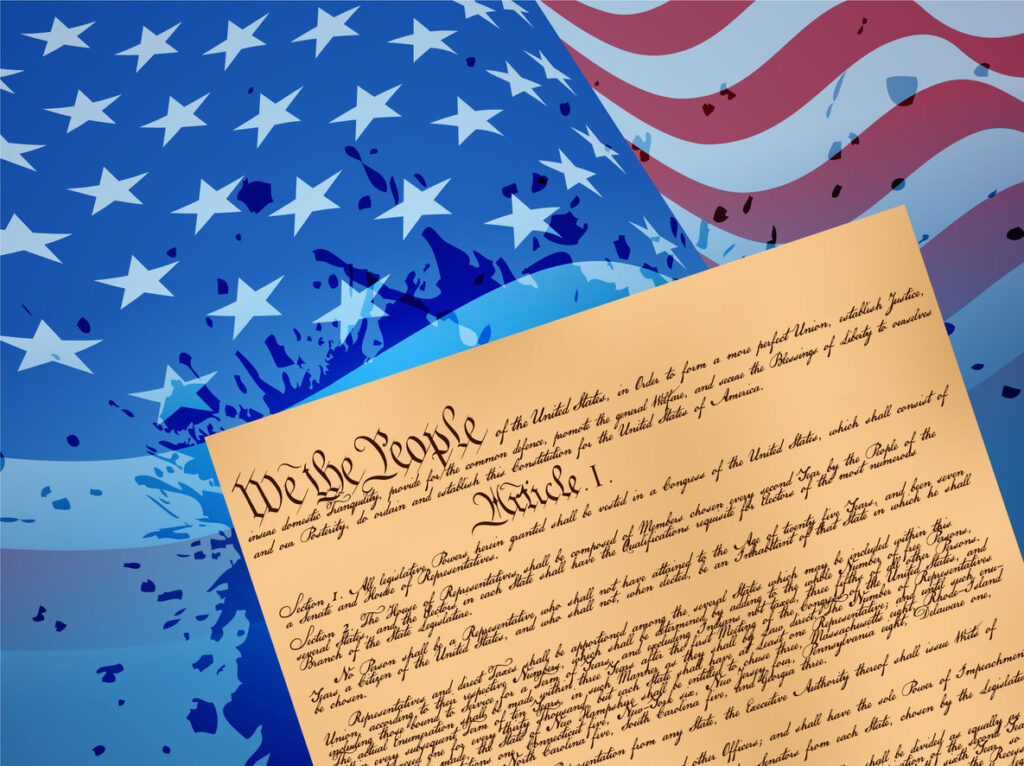
This article was originally published on Washington Examiner - Opinion. You can read the original article HERE

Today, Sept. 17, no less than on the Fourth of July, the public should be celebrating what founder James Madison described to his friend Thomas Jefferson as nothing “less than a miracle.” Teachers nationwide should highlight its lessons.
Today is Constitution Day, the 237th anniversary of the day 39 delegates to the U.S. Constitutional Convention signed the document they created for the people’s debate and consent. Madison, often called the “Father of the Constitution” for his signal role in driving its drafting and ratification, and Jefferson, primary drafter of the Declaration of Independence we celebrate each July 4, together represent the practical application (Madison) of the highest republican ideals (Jefferson’s draft) that mankind has ever used for human governance.
Alas, far too few people appreciate, much less understand in any workable detail, the astonishing ingenuity and admirability of the Constitution that Madison and his compatriots crafted. Worse, too many young people don’t just misunderstand our founding, but they also think this nation and its founding were inherently benighted. Beginning in grade school sometimes, and overwhelmingly so by the time young Americans reach college, our youngsters are taught malicious falsehoods about the American system and history — if, that is, they are taught about it at all.
Too few people comprehend how astonishing it was for our founders to combine two profoundly moral and then-unusual insights to the task of governance. The idea that government exists not to limit freedom but to protect it and the idea that government’s very legitimacy rests on the consent of the governed ran counter to the practices of most of human history. Both, though, are rooted in principles that are wise and humane. To put them into practice together, especially in a situation in which already-sovereign states wanted the advantages of union without forfeiting their own internal authority and prerogatives, required a work of collective genius from the assembled convention delegates.
Schools should start explaining all this no later than middle school. Students should be helped to understand how difficult it is to establish majority rule while ensuring minority rights. Teachers should start with reference to common experiences. Most 12-year-olds readily grasp the basic fairness of majority rule. If 17 people must stay together but have a choice between, say, an excursion to a movie theater or hanging out in a park, then middle schoolers will almost all agree that if at least nine people prefer one option, that’s the one they should take.
Now, ask them if they would still agree if the majority could dictate that the minority pay for the movie tickets for everybody while the majority pays nothing. That, of course, isn’t fair, even though most agree that, in general, the concept of majority rule is fair. The unfairness enters if the minority enjoys no rights or protections from bullying from an unjust majority. Hence the need for minority rights.
Now, give the kids an hour or two or four to design a system that balances these two principles of fairness, majority rule and minority rights, no matter what circumstances arise. The middle schoolers soon will discover how difficult, indeed almost impossible, the balancing act is.
Yet for a polity far, far larger and in a situation exponentially more complex, that’s what Madison and his fellow delegates did, all while trying to effectuate the principles Jefferson had laid out 11 years earlier. Some 237 years later, a historically lengthy period, their remarkable achievement still stands.
Good teachers should be able to present this to students as a puzzle innately interesting to solve: How, pray tell, does it all work?
Constitution Day commemorates a signal achievement, one creating a government strong enough to maintain order but with powers explicitly limited to certain functions, while those powers also are partially separated and partially blended, and with safeguards against majoritarian mob tyranny even while enshrining the default option of majority rule.
CLICK HERE TO READ MORE FROM THE WASHINGTON EXAMINER
The people of the United States are fortunate to inherit such a system. Describing the result of the convention’s efforts, Madison wrote at the time that “posterity will be indebted for the possession, and the world for the example, of the numerous innovations displayed … in favor of private rights and public happiness.”
Yes, indeed.
This article was originally published by Washington Examiner - Opinion. We only curate news from sources that align with the core values of our intended conservative audience. If you like the news you read here we encourage you to utilize the original sources for even more great news and opinions you can trust!










Comments